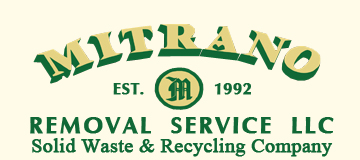 Every business generates waste – there’s no way around it. And while waste removal may not generate a lot of excitement around your workplace, it still has to be dealt with.
Every business generates waste – there’s no way around it. And while waste removal may not generate a lot of excitement around your workplace, it still has to be dealt with.
For some businesses a trash compactor makes sense, especially if you produce a lot of garbage on a regular basis, such as the waste produced by a manufacturing plant. In this case, a trash compactor can help you manage your waste disposal more cost-efficiently, reducing the volume and thereby reducing your waste hauling expenses.
Commercial trash compactors, under the right circumstances, can offer significant benefits, such as:
- Reducing waste volume by as much as 3 to 1 ratio
- Reducing waste hauling costs by reducing the volume being hauled
- Protecting against animal pests and the risk presented by “dumpster divers”
- Reducing odors and fire potential
The central question, however, is – do you produce enough waste material to warrant having a commercial compactor on-site?
If you’re a small retail store, bakery, coffee shop or other mom-and-pop-type business generating only enough waste to fill a small 6 cubic yard container weekly, then you don’t need a compactor. But if you’re a larger operation that generates 60-150 cubic yards per week? You’re definitely a candidate for a stationary or self-contained compactor.
Stationary compactors are designed for businesses that produce predominantly dry waste, such as various kinds of paper and cardboard, wood, and plastic. It’s called “stationary” because the compactor itself is installed and a removable container is used to dispose of the compacted trash.
This type of compactor is most suitable for larger operations such as industrial facilities, warehouses, and some larger retail stores.
Self-contained compactors are built to handle more organic-type trash, such as restaurant or grocery store food processing and healthcare facility medical waste. These compactors are especially designed to handle wet waste – the entire unit including the compactor section and waste container are hauled to a landfill or other disposal facility to minimize risk of leakage. The smaller power module is left onsite to avoid damage.
If you own or operate an organization that generates a relatively significant amount of waste on a regular basis and think a compactor might be right for your business, contact us today. We can help determine if a stationary or self-contained compactor is right for you and your operation.
